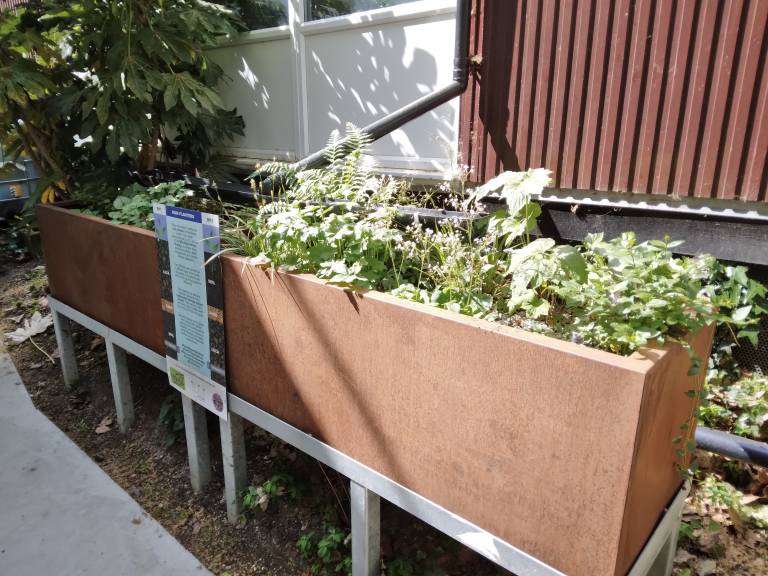Undergraduate module paves the way for greener cities
A UCL degree module is empowering students across disciplines to explore how cities and other urban environments can be adapted through nature-based solutions to address the impacts of climate change.

14 December 2023
More than half the world’s population live in urban spaces and this proportion is expected to rise to almost 70% by 2050. As the climate warms, cities face multiple challenges, from pollution to overheating and lack of nature.
To create climate-adapted, resilient environments that support people and nature, strategies are being developed and implemented in which ecosystems themselves help cool, clean and care for cities. Since 2013, nature-based solutions have been a key strategy employed across Europe to support urban climate change adaptation.
To support progress towards sustainable cities, an elective degree module for second-year students at UCL – Greening Cities – is equipping more graduates with an understanding of how to make cities greener and more sustainable to support better health and wellbeing.
“We need to understand and care for nature, biodiversity and the biosphere – our home. This course should equip more graduates to do exactly that.”
The 12-week course includes taught and practical elements, delivered by course lead Blanche Cameron (UCL Bartlett School of Architecture), along with practising industry and policy experts, who use the connected curriculum to creatively explore and analyse nature-based solutions.
By learning the principles and applications of urban green infrastructure planning, design, implementation and management, graduates are equipped to deliver ecosystem services that will support biodiversity recovery and healthier cities.
Through workshops, site visits and coursework, students gain an understanding of the causes and impacts of climate change and biodiversity loss, and how impacts such as heatwaves, surface flooding and water pollution affect people living in urban environments. The course also explores the impacts of rapid urban expansion, land use changes, and over-extraction of natural resources. Wider issues such as large-scale agricultural methods and impacts that affect biodiversity and habitat loss locally and globally are also covered.
The number of students choosing this elective module has almost doubled since it started in 2019. In 2023, 33 students completed the course, which is designed to develop students' own creative responses to climate adaptation and nature recovery. Many students studying UCL’s BSc Architectural & Interdisciplinary Studies choose the course, together with others studying disciplines as varied as urban studies, genetics and sociology.
“The course allows students to go from learning a new topic, to designing and implementing real-world projects, including on UCL’s own campuses,” enthuses Blanche, who devised and leads the course.
For example, in 2022, students collaborated with biodiverse garden designer and consultant Wendy Allen, to develop and install the Medawar Rain Planters (pictured) on a building in UCL’s Bloomsbury campus with the help of UCL Estates.
In 2023, projects include refurbishing green roofs for better climate resilience and stormwater management that bring benefits for air quality, biodiversity and human wellbeing.
“To solve the vast existential crises we face, we need to understand and care for nature, biodiversity and the biosphere – the Earth's astoundingly complex and beautiful ecosystem – our home,” Blanche says. “This course should equip more graduates to do exactly that.”
 Close
Close


